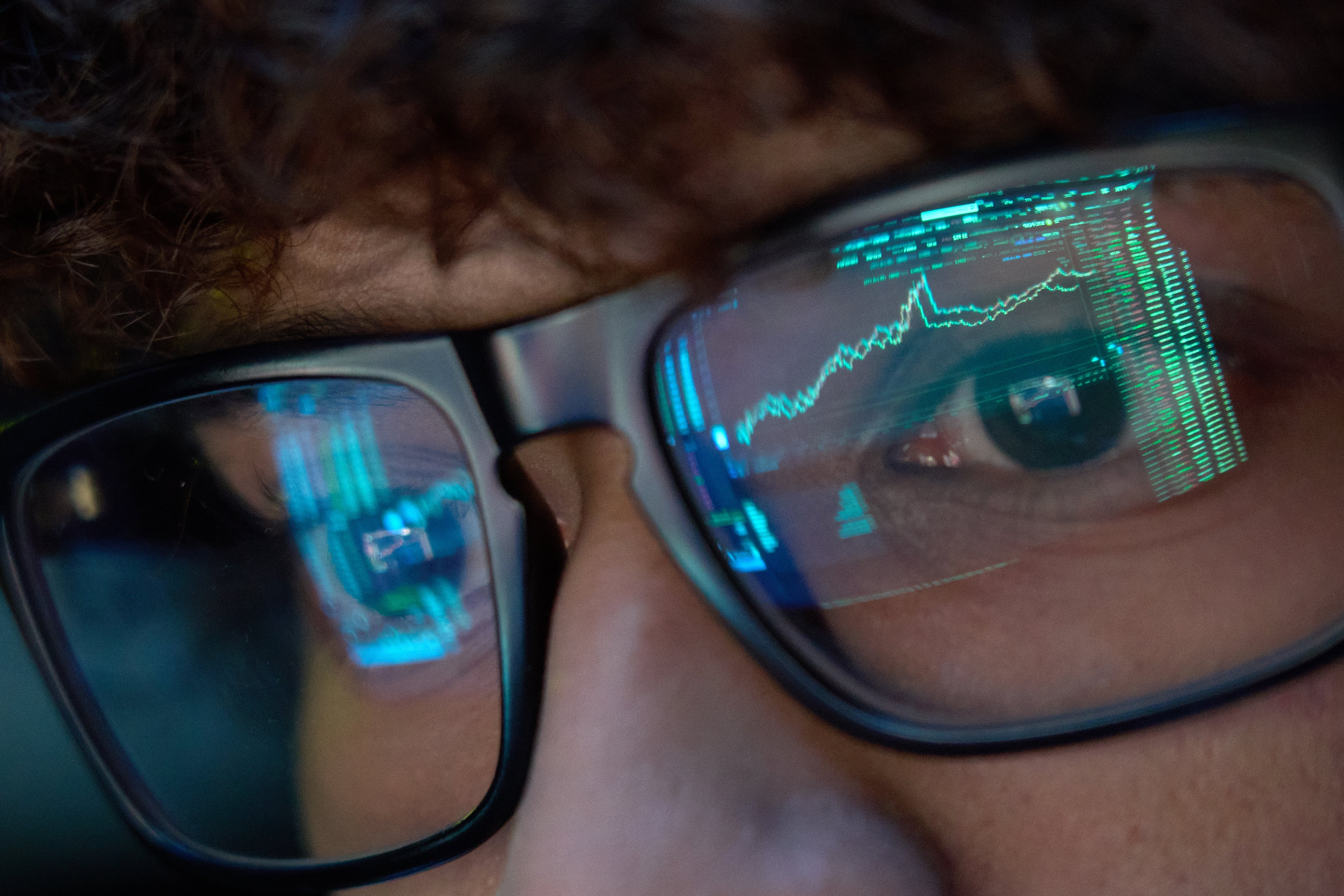Since late 2022, no trend has caused investors to reach for their pocketbooks or click the buy button in their brokerage accounts quite like artificial intelligence (AI). But it's not the only technological advancement that's delivering eye-popping gains or promising a mouthwatering addressable opportunity.
The rise of quantum computing has investors very intrigued. Trailing-12-month returns (as of the closing bell on Oct. 21) of 347% for IonQ (IONQ 4.22%), 3,500% for Rigetti Computing (RGTI 6.05%), 2,650% for D-Wave Quantum (QBTS 6.54%), and 1,640% for Quantum Computing Inc. (QUBT 4.50%) speak to the opportunity investors see in these pure-play quantum computing stocks.
Quantum computing relies on specialized computers and quantum mechanics to tackle complex problems that classical computers either can't do or wouldn't be capable of doing in our lifetime. The applications for this technology to hasten the drug-development process, make the internet and cloud more secure, improve weather modeling, tighten up financial risk management, and speed up the AI algorithm learning process can lead to big dollar figures.

Image source: Getty Images.
But in spite of this potential, meaningful headwinds exist for IonQ, Rigetti Computing, D-Wave Quantum, and Quantum Computing Inc. While some of these hurdles are well-known, one, in particular, might be the biggest threat of all, and it's completely flying under the radar.
It's no secret that history and valuations are potential problems for quantum computing stocks
Perhaps the most readily known headwind for next-big-thing technologies is that history isn't their friend, at least in the early going.
Dating back to (and including) the advent and proliferation of the internet in the mid-1990s, every game-changing technology and hyped trend for more than three decades has eventually navigated its way through a bubble-bursting event. Although it's impossible to accurately predict when the music will stop, the one constant among these prior events is that investors overestimate the adoption rate and utility of a new technology or innovation, which eventually leads to lofty expectations not being met.

NYSE: IONQ
Key Data Points
While there are plenty of practical applications for quantum computers on paper, it's not clear that any broad commercialization of this technology is underway, or that any businesses are necessarily profiting from this technology in any meaningful way. Investors look to have, once again, overshot the mark.
The other well-known concern with quantum computing stocks is their valuations. Even though value is a somewhat subjective term that's going to differ from one investor to the next, the trailing-12-month price-to-sales (P/S) ratios for the aforementioned quantum computing pure-plays leave little room for discussion that these stocks are, collectively, very pricey:
- IonQ: P/S ratio of 259
- Rigetti Computing: P/S ratio of 1,280
- D-Wave Quantum: P/S ratio of 370
- Quantum Computing Inc.: P/S ratio of 7,546
History tells us that businesses on the leading edge of game-changing technologies have never been able to sustain a P/S ratio above 30 for any extended period. Even with modest pullbacks in all four of these pure-play stocks over the last two weeks, these valuations don't appear sustainable.

Image source: Getty Images.
This is the threat to quantum computing stocks almost no one is talking about
However, not all threats stand out in plain view like historical precedent or unsightly valuations.
Arguably the biggest threat to the long-term success of IonQ, Rigetti, D-Wave, and Quantum Computing Inc. is the deep-pocketed businesses responsible for moving the stock market, the "Magnificent Seven."
In one respect, some members of the Mag-7 have been a blessing for quantum computing's pure-play stocks.
For example, Amazon is giving subscribers of its quantum cloud computing service, known as Braket, access to quantum computers from IonQ and Rigetti. Braket offers clients the ability to accelerate scientific discovery and build or test quantum hardware. In other words, Amazon is providing a real-world stomping ground where IonQ's and Rigetti's quantum computers are getting their feet wet.
But things may look quite different quarters or years from now for Wall Street's quantum computing darlings.

NASDAQ: RGTI
Key Data Points
All four of these pure plays are losing a lot of money as they attempt to expand the availability and infrastructure needs of their quantum computers and offered solutions. With cash outflows expected to be persistent for years to come, IonQ, Rigetti Computing, D-Wave Quantum, and Quantum Computing Inc. will almost certainly be reliant on dilutive share offerings and/or debt to keep things moving. The key point being that access to capital will remain challenging for these businesses.
Meanwhile, with the exception of electric-vehicle maker Tesla, which has had a few dicey quarters recently, with regard to cash flow from operations, the other six Magnificent Seven members have been generating cash from operations at a phenomenal pace. Most Mag-7 members are also sitting on mammoth treasure chests of cash, cash equivalents, and marketable securities.
When a new technology with a sizable addressable market ushers onto the scene, these industry leaders usually want their piece of the pie -- even if monetization is potentially years away. For instance, Meta Platforms has invested aggressively into the metaverse (the 3D virtual world where users can interact with each other and their surroundings), even though monetizing access to the metaverse still looks to be some time off.
In addition to Amazon offering a quantum computing service built atop its world-leading cloud service infrastructure platform, Amazon Web Services, Alphabet is developing a quantum computing chip known as Willow, and Microsoft has developed a novel quantum processing unit, Majorana 1, for its cloud-based Azure Quantum platform.
These early developments strongly suggest the cash-rich and well-partnered Mag-7 stocks could easily displace Wall Street's quantum computing pure-plays. Though time will tell the tale, the risk-versus-reward profiles for IonQ, Rigetti Computing, D-Wave Quantum, and Quantum Computing Inc. look highly unfavorable for investors.












